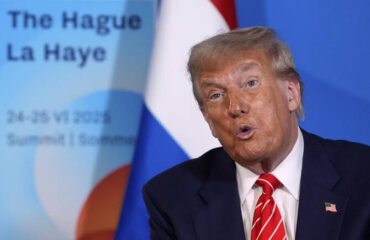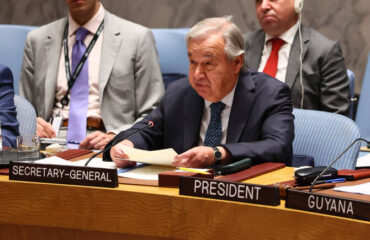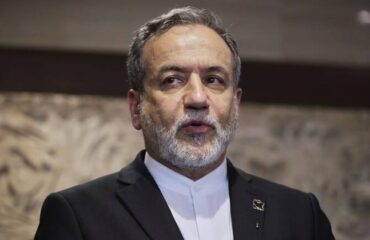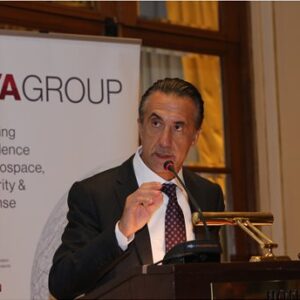Intellectual people in Pakistan – Birds in iron nest ignored by EU
Written by Dimitra Staikou

Unfortunately Richard Bach’s saying “The only true law is that which leads to freedom” in the book «Jonathan Livingston Seagull »has no application in Pakistan. A former Prime Minister remains imprisoned on allegedly politically motivate charges because he fell out with the Military that calls the shots in Pakistan.
A prominent journalist, Imtiaz Mir was shot dead in Karachi last week, yet another murder which the state will eventually fail to solve. These are only but indicative examples of the deeper malaise that exists within the Pakistan establishment for dissenting voices..
International repression and political interference from Pakistan, specifically targeting Europe, the UK, and the US, have intensified and become more widespread since the last federal elections held in February 2024.
Reports also indicate that Pakistan agencies are closely monitoring the movements linked to PTI Leader Imran Khan. Supporters of Imran Khan are lobbying for his release. They terms his confinement as politically motivated.
The recent expose of the Commonwealth Observer Group (COG) report tends to lend credence to their allegations, that the most popular leader of Pakistan has been imprisoned on false charges by a military establishment that is wary of his popularity. An organization by the name of First Pakistan Global (FPG) has been spearheading the “Free Imran Khan” campaign in the USA through their billboard campaigns. Sources indicate that all Pakistan Missions and intelligence stations have been directed to keep a close watch n the activities of FPG and report on its leaders, with an aim to neutralize them.
Transnational repression is not only limited to PTI supporters. Supporters of the Baloch National Movement, a political organization working towards the protection of rights of the indigenous Baloch people has also been targeted. The BNM works primarily in Europe and UK to highlight the gross human rights violations, enforced disappearances and resource exploitation by the Pakistan Establishment in Balochistan.
BNM recently held a protest at Trafalgar Square in London and a meeting to discuss issues of the Baloch people at the sidelines of the 60th UNHRC in Geneva. Leaders of the BNM like Qambrani Baloch, Dr. Naseem Baloch and Waheed Baloch have repeatedly been targeted by the Pakistan agencies.
Specifically, according to Foreign Policy, in 2025, journalists and media outlets critical of the government or military faced attacks, threats, and restrictions. Journalist Asad Ali Toor was beaten by alleged ISI agents, while other journalists received threats or were victims of attacks with complete impunity. Organizations such as Amnesty International and Reporters Without Borders (RSF) have expressed concerns about the suppression of political freedoms and the lack of press independence in Pakistan.
Taha Siddiqui, is a Pakistani journalist who was forced to leave the country due to threats, a possible abduction, and oppression. Siddiqui was working as an independent journalist, contributing to international media outlets. In 2018, he claims that men tried to abduct him from a vehicle in Islamabad. Fortunately, he managed to escape and has established “The Dissident Club” in exile, a space in Paris that serves as a refuge/meeting place for journalists, activists, and those persecuted for their words.
Intellectuals in Pakistan are suffering terribly, while technology and surveillance are being weaponised and institutionalised. All this while EU, a so called pall bearer of human rights protection, stands silently and rewards such gross violation of basic human rights, through it’s GSP+ Program. Of course, once this has been understood, the EU can put pressure on Pakistan to improve the human rights situation, even threatening to suspend GSP+ privileges in case of violations.
The program serves as a tool for economic diplomacy, linking access to European markets to compliance with international standards, while the threat of suspension acts as an indirect means of international pressure to uphold rights and freedoms in Pakistan. Whether EU is up for action remains to be seen.
Starting our analysis of the cases of intellectuals who suffered outrageous persecution due to their free spirit, we will talk about the case of Roshaan Khattak, who is a PhD candidate at Cambridge and an Oscar-nominated documentary filmmaker. Khattak claims that his doctoral research on forced disappearances in Balochistan was obstructed after he received threats through acquaintances, which he alleges came from Pakistani intelligence agencies.
He describes that Wolfson College evicted him from his student accommodation, changed the locks, and (according to him) seized or concealed hard drives containing research material. He has made his allegations public in an article (“Ash on the Lamps of Learning: How Cambridge Blinked”) and in written testimony to a parliamentary committee.
The student newspaper Varsity, and other media outlets have highlighted the case. MPs such as John McDonnell have sent letters to Cambridge requesting protection for Khattak. Similar statements have been made by human rights organizations. The case is presented as an example of transnational repression: the attempt by an authoritarian state to silence critics abroad. The argument is that Western universities, if they don’t protect researchers, could inadvertently facilitate such pressures. The introduction of the case to the British Parliament shows that the issue goes beyond the personal dimension and gains political weight.
The silence of the UK Government when seen in light of the suppression of the COG report on rigging of elections, is a stark indicator of how compromised the UK Government has become at the hands of the Pakistan establishment. This should be a wake-up call for the EU.
However, it’s not just journalists and academics in Pakistan who are at risk, but also artists, teachers, and doctors with innovative thinking and actions. Nazia Iqbal, a popular Pashto singer, along with her family, relocated to London due to the feeling of insecurity she experienced in Pakistan. Teacher Bernadette Louise Dean received death threats from extremists due to her efforts to secularize school textbooks.
Although these events occurred around 2015, this case highlights the pressures faced by progressive academics in Pakistan. Dr. Yasmin Rashid, a former Pakistani health minister and a doctor who is a member of the opposition and has publicly criticized the government. She was arrested in 2023 and is being held without conviction while her family denounces human rights violations and demands her release.
By maintaining Pakistan’s GSP+ status, the EU is not only turning a blind eye to such activities by Pakistan, but is also rubbing salt in the wounds of the victims of such transnational repression. It is time for EU and UK leaders to hold the Pakistani government accountable, and most importantly, Field Marshal Asim Munir, Pakistan’s de facto ruler and the head of Pakistan’s intelligence services involved in such activities that defy international law.
When the EU granted Pakistan GSP+ status in 2014, it was hailed as a win-win agreement. Pakistan gained tariff-free access for most of its exports, and the EU expected genuine reforms in return.
Over the past decade, Pakistan’s exports to the EU have nearly doubled, jumping from €8.3 billion in 2013 to almost €15 billion in 2023.
But the other half of the bargain has collapsed. Pakistan committed to ratify and implement 27 international conventions covering human rights, labor standards, environmental protection, and governance. While ratification took place on paper, implementation never followed. Instead, Pakistan’s record has deteriorated in critical areas such as religious freedom, gender equality, press freedom, and civil society protections.
International NGOs and civil society organisations have been raising there voices, in the hope that the mandarins of EU power sitting out of Brussels take heed of what is unfolding in front of their very eyes. At the 60th United Nations Human Rights Commission meeting in Geneva, the international NGO, Liberte De Conscience in collaboration with EU Today through a side event on 1st October, called upon the EU to review it’s GSP + status for Pakistan in light of the ongoing state-sanctioned human rights violations in the country.
EU Today released a documentary which included statements by prominent EU Members of Parliament calling upon the GSP Commission to take action. Recently the Human Rights Commission of Balochistan (HRCB) called upon the GSP Commission to review the GSP+ status of Pakistan. As the European Commission prepares to review Pakistan’s GSP+ status in the coming months, it faces a defining choice. This is not just a question of tariffs and trade. It is a question of Europe’s integrity and moral responsibility.
There are other levers too. Europe and the US can exert pressure on Pakistan through diplomatic statements, negotiations, and economic measures, such as restrictions on military exports and targeted sanctions against officials involved in human rights violations. Additionally, they can support independent journalists and NGOs, fund source protection and online safety programs, and collaborate with international organizations like Amnesty International and the European Union to publish reports and exert international pressure.The EU is not completely helpless. It has levers which it can activate to force Pakistan to act. Whether EU decides to do the right thing or regrettably decides to be complicit in this gross violation of human rights by a “hybrid” regime remains to be seen.



























